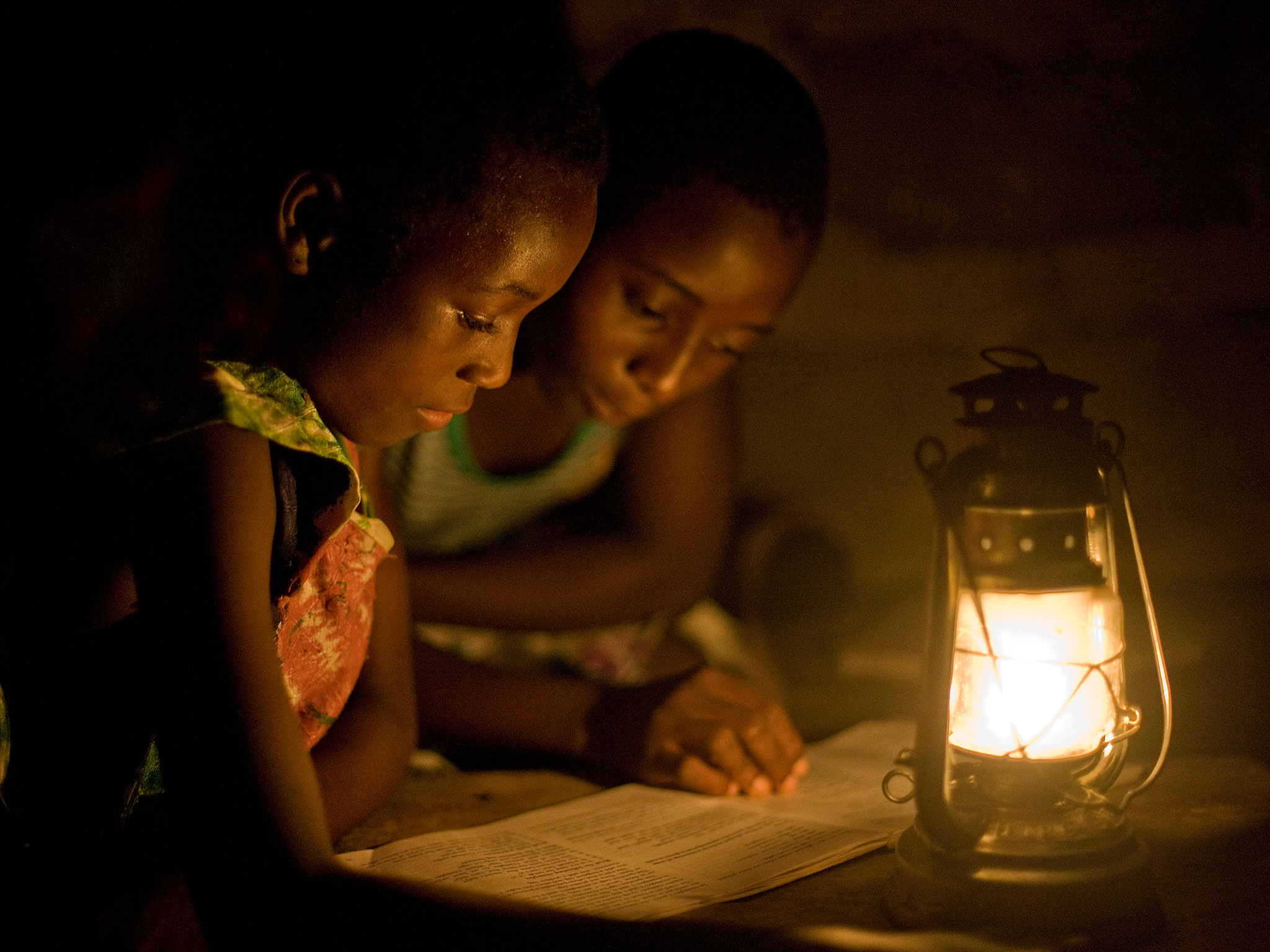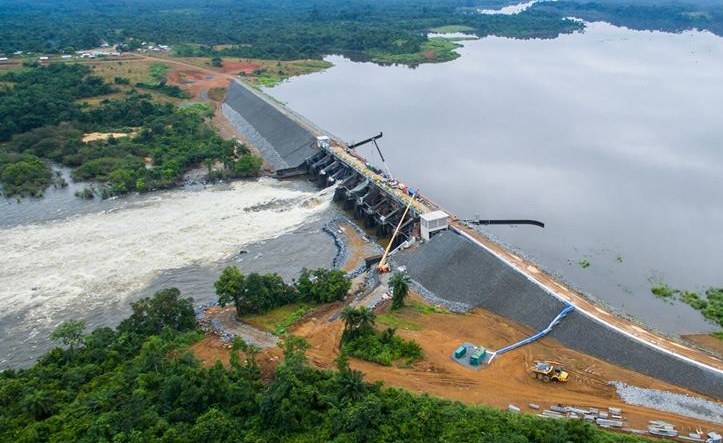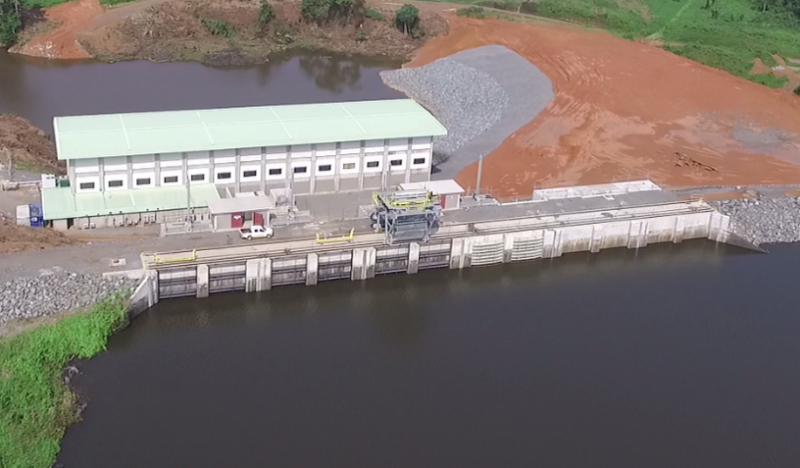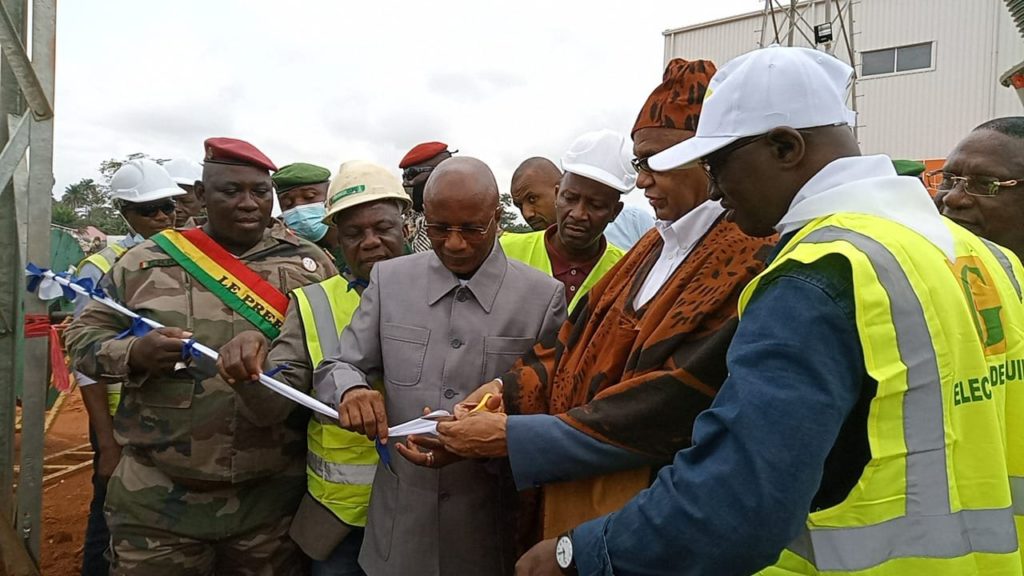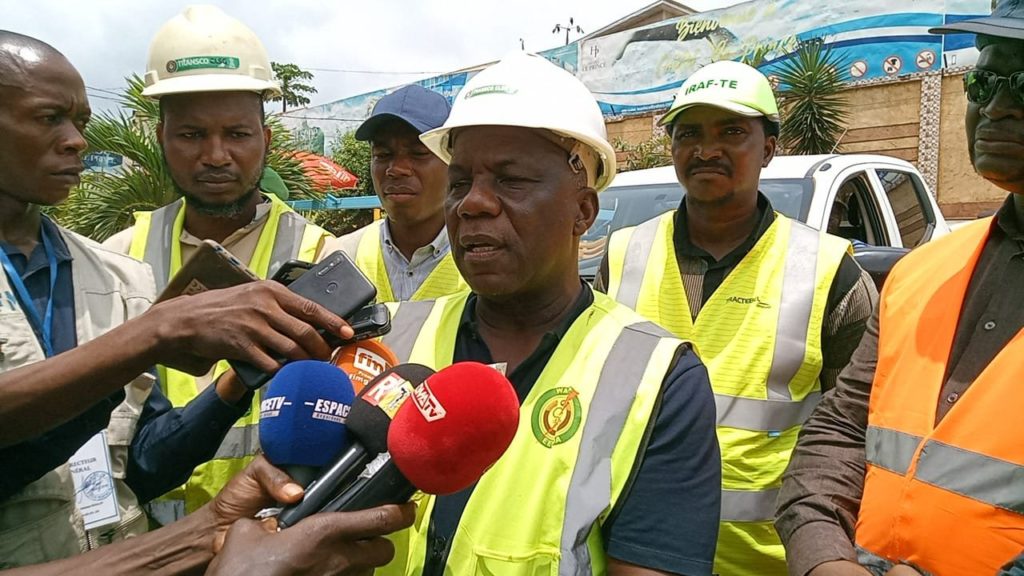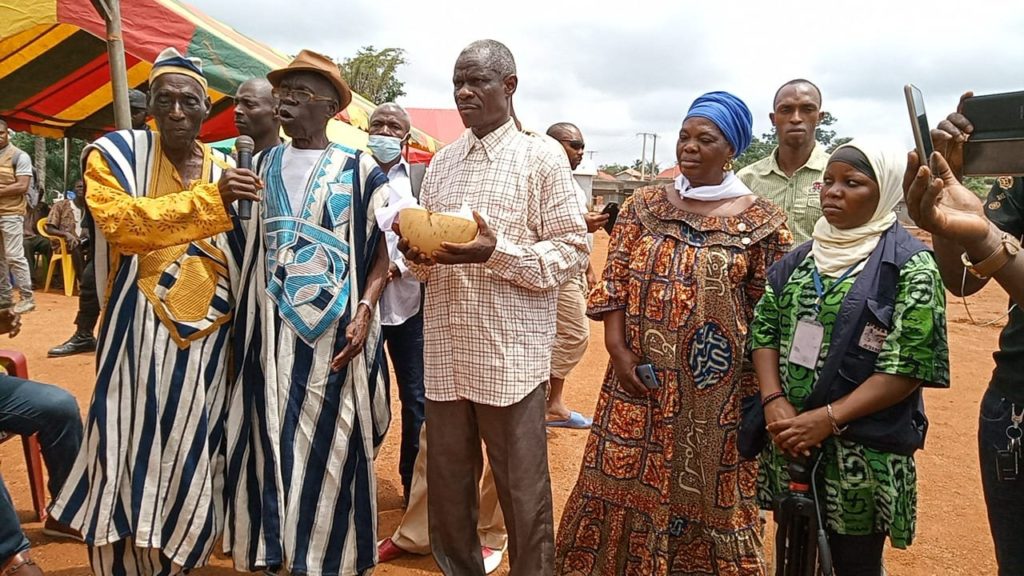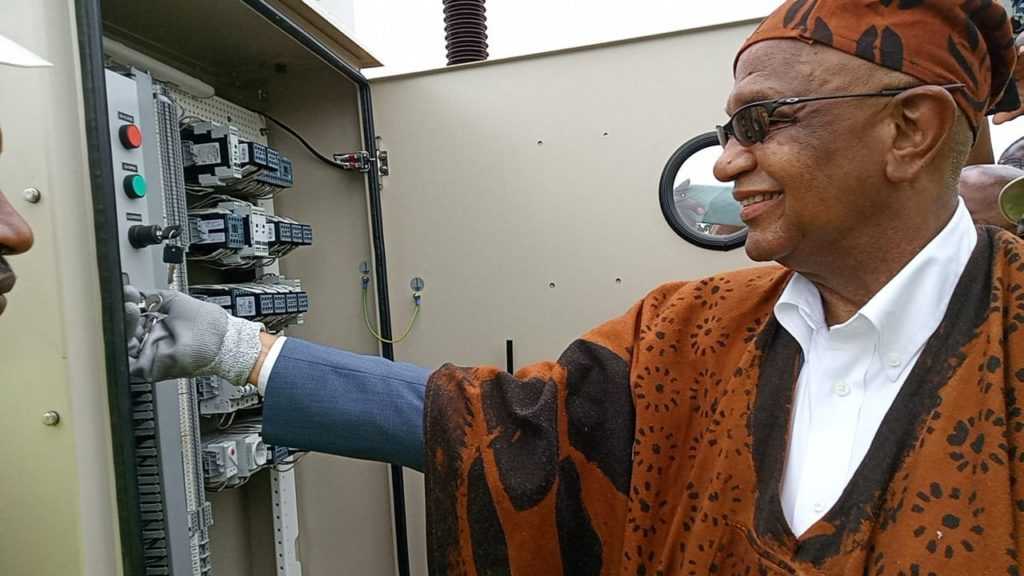MONROVIA – From all indications, Liberia should have been the first beneficiary of uninterrupted electricity from the Ivory Coast through the TRANSCO CLSG transmission line. But what many may consider the lack of political will to perfect the agreement has made irrelevant the presence of five fully completed power substations in the country for the provision of cheap and stable electricity.
In February last year, it was anticipated that Liberia would be commissioned the transmission line which delivers 225kv of electricity from the Ivory Coast to complete the Mount Coffee Hydro for affordable and widespread electricity distribution throughout the country.
This was after Liberia was announced to be the first TRANSCO CLSG country to have completed the building of power stations and the stringing of transmission lines from the Ivory Coast to Liberia.
TRANSCO’s substation at Mount Coffee Hydro is the biggest substation among all the four countries.
The Connectivity
The supply point of the electricity is in Mah, Ivory Coast, and would be supplied to Yekepa, Nimba County. There is a 225kv substation in Yekepa which the LEC would connect to supply the electricity in Nimba.
The Yekepa substation is linked to another substation in Botota, Bong County which would supply Central Liberia and Southeastern Liberia and also to the Lofa in the north.
From Botota, the transmission lines lead to a substation in Buchanan, Grand Bassa which would electrify Grand Bassa, Rivercess County and so parts of Margibi County.
From Buchanan, the lines run straight to Mount Coffee where the biggest substation is. This is mainly for Montserrado given the population density of Montserrado County.
There is another substation in Mano that will supply the inhabitants of Gbarpolu, Bomi, and Grand Cape Mount Counties.
The CLSG project is intended to beef up the Liberia Electricity Corporation’s supply capacity to enable increased connectivity and a drop in the cost of electricity.
Sierra Leone, Guinea in the lead
Last December, Sierra Leone became the first country to begin utilizing the CLSG power. Kenema, the second-largest city in the country ended its electricity nightmare when President Maada Bio switched on the power lines.
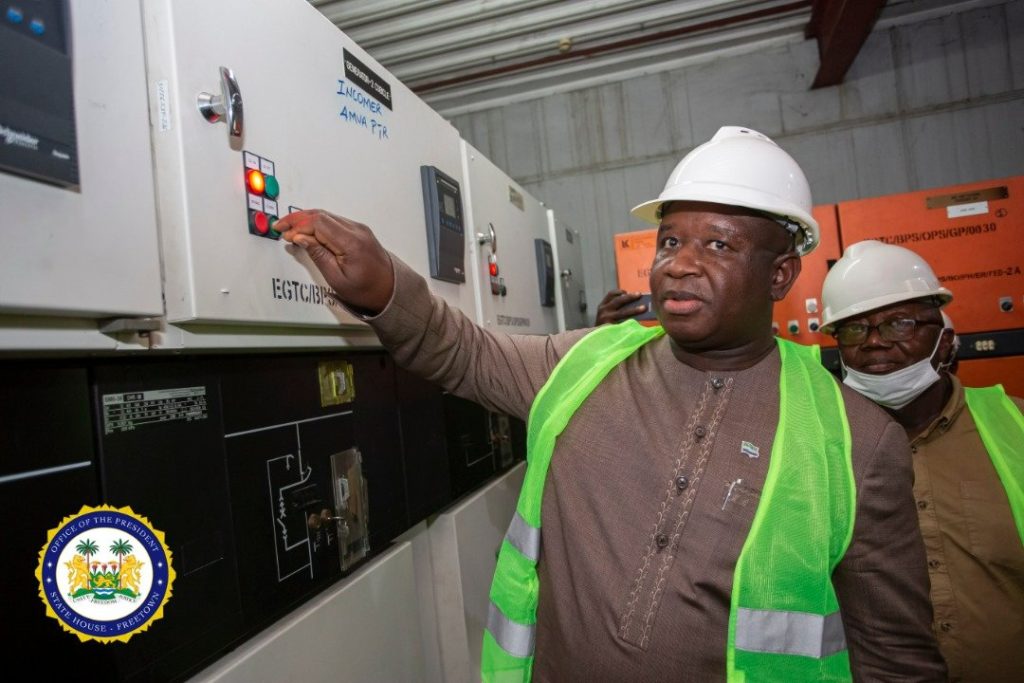
Sierra Leone was the first country to sign both the Power Purchase Agreement (PPA) and the Transmission Service Agreement (TSA) and start trade on the line in earnest. This, TRANSCO CLSG General Manager, Mr. Mohammed M. Sherif, described as a clear manifestation of the President’s leadership role played in ensuring that the transformative CLSG project is achieved for the betterment of all.
Both Sierra Leone and Guinea have manifested their unwavering readiness to provide unimpeded electricity access to their respective populations as both countries have completed the signing of the PPAs and TSAs.
In Guinea’s second most populated and largest city in the forest region of Nzerekore, thousands jubilated last Saturday when they received the much-awaited stable and affordable electricity from the TRANSCO CLSG power grid.
The city of Nzérékoré has been in darkness for years but will now have 24-hour electricity from the TRANSCO CLSG grid.
With a volume of eleven megawatts (11 MW) per year, the CLSG interconnection line will improve energy demand in the city of N’Zérékoré and its surroundings and thus accelerate the socio-economic development of the region.
Why is Liberia Still Behind?
Liberia has been plunged into darkness since the dry season began last November 2021. The Liberia Electricity Corporation (LEC) blames its inability to provide stable electricity in the capital and its environs during the dry season which it says reduces the volume of water in the St. Paul River which feeds the Mount Coffee Hydro. This is not a new phenomenon with the hydro.
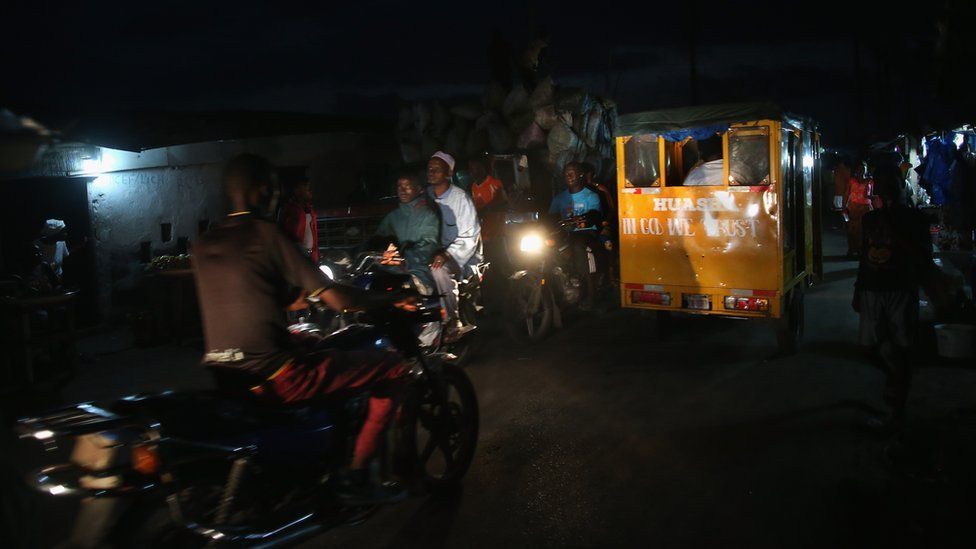
The lack of electricity in the capital is affecting several businesses and further shrinking economic activities in the country. At the same time, due to the Russia-Ukraine crisis, the prices of petroleum products have gone up – adding to the cost of running a generator for electricity supply.
Most embarrassingly, the Roberts International Airport has been operating in darkness over the past month – causing some flights like Royal Air Maroc to abort landing due to the dark runway.
But the Minister of Finance and Development Planning, Mr. Samuel Tweah says the TRANSCO CLSG may not be the solution to the country’s electricity challenge at the moment. In his view, the rainy season will solve the problem due to the cost attached to the CLSG line.
Appearing on the state radio last month, Min. Tweah hilariously called on Liberians to be patient until the rainy season starts to get electricity.
He said the Weah-led government was making some “tough choices” to deal with the issue of electricity in the country.
“It takes some time, it takes some patience, it takes some courage, it takes some honesty to explain to the Liberian people as I am doing right now, to come clean and not hide anything from them –all of the policy tools are on the table and ask them (Liberians), let’s bear patience; we will increase the capacity, we will better manage the load shedding. When we get through the next rainy season, when we get in January next year, we are not going to be in this same path,” Minister Tweah said.
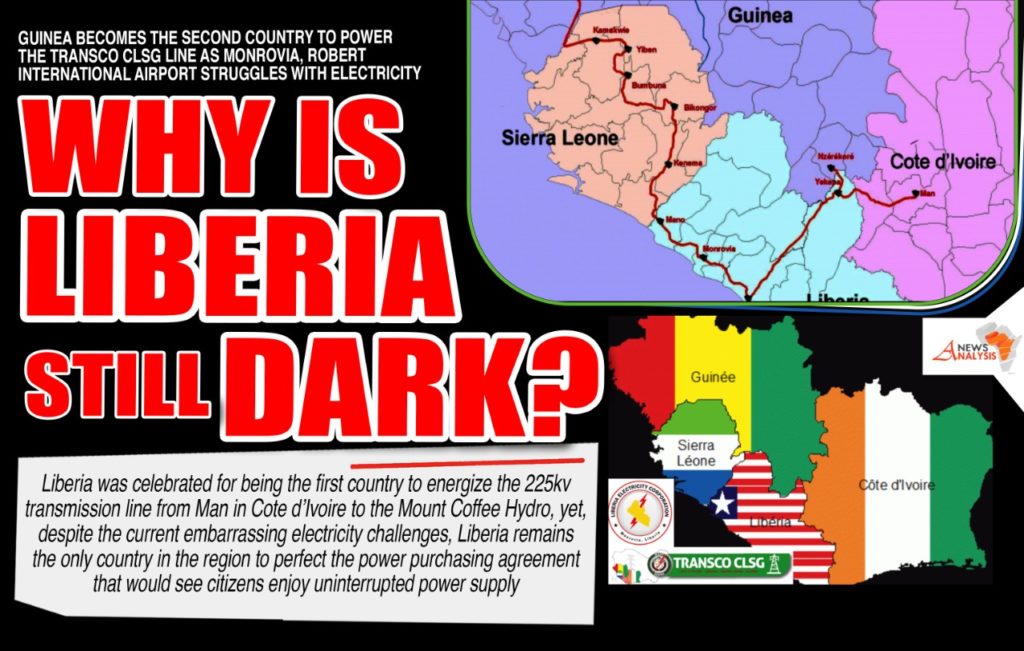
To start the CLSG project, Minister Tweah said, the government needs to pay US$10.4 million. He added that the real cost of the electricity that comes from the neighboring Ivory Coast is US$3.6 million a month.
Also, Minister Tweah said the country will have to pay for two months – that is US$7.2 million for what he termed a security deposit before the CLSG project takes full effect.
Minister Tweah added that the Liberian government owes their Ivorian counterpart a sum of US$9 million for cross-border trade of electricity in Maryland and Nimba Counties as the Liberia Electricity Corporation has not been paying the Ivorian government for the last three years.
“The Ivorian government says before we start CLSG, we have to put US$2 million down and the remaining seven million, the government of Liberia will have to pay US$550,000 every month until the nine million is wiped out,” he said.
Minister Tweah added: “Also, the Liberian government will have to pay US$62,000 every month for the transmission of the line to the management of the CLSG.”
According to Minister Tweah, considering of these outstanding payments, to get the CLSG project, the country should be prepared to pay an amount of US$48.8 million between now and December.
He said as Minister of Finance he could not give assurance that the government of Liberia has such an amount to commit to the CLSG project as it is not in the current fiscal budget.
According to the Minister of Finance, even if the government signs the agreement with CLSG, when the rainy season starts, the country will have adequate power from the Mount Coffee Hydro Plant.
“The thing is that when we sign this thing and when the rainy season comes, two months from now, our hydro will come back to its full capacity and we are still going to be paying US$3.6 million every month while we have our hydro running at full capacity. And so, these are the things we are studying and these are the critical decisions we have to make,” Minister Tweah said.
According to the Minister, even if the government will have to cut its expenditure by 50 percent, an amount of US$29 million will still be made available by the CDC-led government.
“So, that is the choice that we have. It is an expensive proposition, we use it for one or two years and by the time we get all of our electricity infrastructures some of this stuff will drop down,” he said.
“Somebody says look, it is not going to be a smart thing right now for you to commit US$29 million -we got two more months then we will be free. We are going to use the rainy season time to plan better for the dry season. I do not think it will be a good use of the Liberian people’s money to lock them in for these two months at the cost of US$29 million and in two months’ time you will not need all the current, we will be wasting the money,” he added.
Yet, Putting US$23m into RIA Electrification
While the finance minister does not see it feasible for the government to expend US$29 million for the purpose of finalizing the agreement for the supply of the CLSG electricity, he announced on Monday that the government has opted to allocate US$23 million to solve the electricity issue at the Roberts International Airport.
Pundits believe the infusion of US$23 million for the provision of electricity at the RIA would be a complete waste, especially when that amount could be directed towards the CLSG power that would provide more stable electricity, not only for the airport but the entire country.
“How did they even arrive at the US$23 million just for the airport. That amount is very significant in solving the power problem for the entire country. There is no guarantee that Mount Coffee would function to capacity during the rainy season,” a pundit familiar with the capacity of Mount Coffee Hydro said.
U.S. Ambassador Calls CLSG Connection
At the same time, the United States Ambassador to Liberia, Michael McCarthy, has encouraged the Government of Liberia to complete all commercial framework documents including the Power Purchase Agreement (PPA) with Cote d’Ivoire and the Transmission Service Agreement (TSA) with TRANSCO CLSG to ensure the delivery of stable and affordable electricity to the people of Liberia.
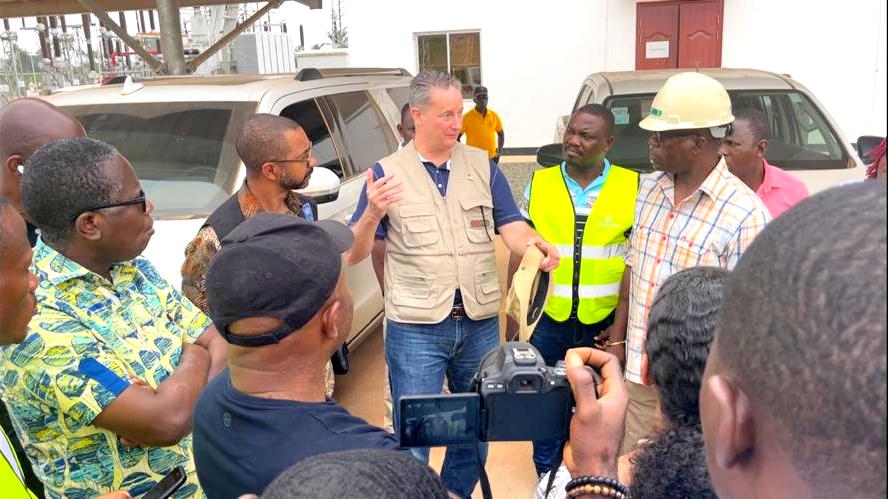
Ambassador McCarthy along with the European Union Delegation Ambassador, the French Ambassador to Liberia, representatives of development agencies in the country and GOL jointly visited the CLSG Yekepa Substation in Nimba County recently to obtain real-time information about the status of donor-funded projects in Liberia.
Ambassador McCarthy and the joint delegation were impressed with the progress of the CLSG Project and encouraged the Government to fully utilize the CLSG facility thereby providing electricity access to its citizens as it is the primary responsibility of the government to provide quality services for its citizens and improved access to stable electricity for the people.
TRANSCO CLSG Country Manager, Jerry T. Taylor led the delegation on a guided tour of the substation. He provided a status update on the CLSG project implementation in the country, adding that the CLSG network in Liberia was fully energized between April to July 2021.
Source: Front Page Africa

